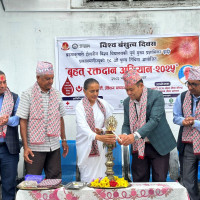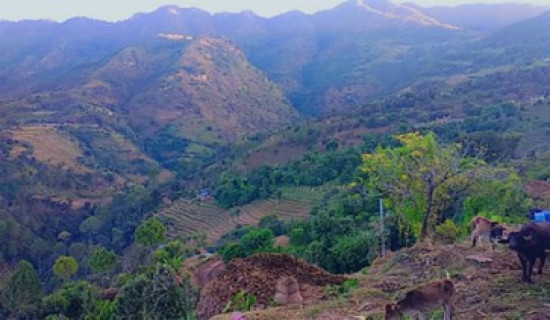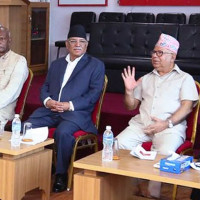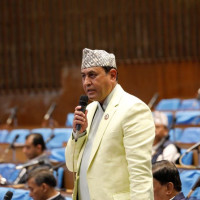- Saturday, 23 August 2025
LDC graduation will be historic: PM Oli
By A Staff Reporter,Kathmandu, July 31: Prime Minister KP Sharma Oli has said that Nepal’s graduation from the status of Least Developed Countries (LDC) marks a historic achievement and an opportunity to enhance the country’s global image and economic standing. Addressing the National Assembly on Wednesday, PM Oli said Nepal’s transition into a developing country by 2026 reflects decades of effort and consistent national planning.
“This is a matter of great pride for all of us. Nepal is moving towards self-reliance. Our international image will be elevated, our Country Rating Index strengthened, and we will create a more favourable environment for investment,” said PM Oli.
Nepal was first listed as an LDC in 1971 through United Nations General Assembly Resolution No. 2768. The Prime Minister highlighted that Nepal, which had led the LDC group of 45 countries, is now among eight nations graduating from the list. “We have made significant progress in the Human Assets Index and in reducing economic and environmental vulnerabilities,” he said.
“Nepal had been working towards this upgrade through periodic plans, budgets, and programmes since 2010,” said PM Oli. “The UN recognised our progress in the Human Assets Index and the Economic and Environmental Risk Index in its assessments in 2015, 2018, and 2021. But it is the recent improvement in per capita gross national income that finally makes graduation possible in 2026,” he added.
He noted that signs of successful reform have begun to appear through the implementation of the 15th Plan and the ongoing 16th Plan, Prosperous Nepal and Happy Nepali. “The current plan's vision, focusing on social justice, good governance, and prosperity, has been developed in anticipation of life after LDC graduation,” said PM Oli.
Despite the positive development, Oli acknowledged the challenges Nepal will face after losing certain international privileges. “There will likely be a reduction in the facilities provided by the World Trade Organization, the United Nations, the World Bank, and the European Union. Health and education support may also be affected,” he said. He also warned that the impact of climate change and natural disasters may continue to hinder development.
To address these challenges, the Prime Minister said the government has adopted a smooth transition strategy prepared by the National Planning Commission and has implemented six key strategies. These are being overseen by a high-level steering committee chaired by the Prime Minister himself. “We have also formed provincial implementation committees under the Chief Ministers and federal evaluation committee under the chairmanship of secretaries,” he said.
Prime Minister Oli stressed the importance of legal reform and institutional strengthening in sustaining the upgrade. “We are reviewing laws, improving institutional capacity, reforming the procurement and construction sectors, and building infrastructure to transform Nepal from land-locked to land-linked country,” he said. Efforts are also being made to improve value chains through multinational investment and labour market reforms.
“We are committed to making this transition sustainable by mobilising cooperation from all sectors, domestic and international,” he added. The Prime Minister extended his sincere gratitude to the Development, Economic Affairs and Good Governance Committee of the National Assembly. “The government is determined to implement the issues and suggestions outlined in the committee’s report. I thank the members for their dedication,” he said.















